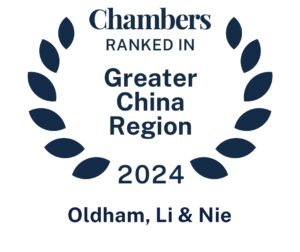Oldham, Li & Nie, a leading independent law firm, is pleased to announce that it will be the first Hong Kong law firm to establish a dedicated Elder Law Practice Group. This groundbreaking initiative marks a significant milestone in the legal landscape of the HKSAR. Through its longstanding commitment to its Pro Bono and Community Work Programme, Oldham, Li & Nie recognise the need to dedicate legal services to serve the needs of the aging population, their families and their service providers.
Gordon Oldham, Senior Partner at Oldham, Li & Nie, stated, “Elder Law is an established practice area in North America and much of Europe. We’re proud that our firm is at the forefront of pioneering this specialised practice area in Hong Kong. We are driven by a deep sense of dedication and integrity to help our clients navigate their legal challenges with dignity and peace of mind. We are committed to serving Hong Kong’s aging population.”
The co-head of the new practice, Helena Hu, brings with her over 20 years’ of experience in private and in-house legal practice, both in Hong Kong and Canada. Ms Hu said, “We are part of a Chinese society in the modern world and we remain true to our rich Confucian heritage, retaining our values of respect, humanity and benevolence. We have identified a significant gap in the market for legal services specifically tailored for clients facing the second half of their lives. Our new Elder Law practice has been set up to bridge this gap. Our Elder Law team has been carefully selected not just for their legal expertise and experience but for their dedication to provide clients with dignity, independence and peace of mind. We strive to provide holistic and pragmatic legal solutions to our golden agers in Hong Kong.”
Oldham, Li & Nie’s Elder Law practice will deliver a wide range of legal services, including but not limited to asset consolidation and disposal, estate planning, probate and trust administration, will drafting, powers of attorney, alongside handling disputes related to issues such as guardianship, inheritance and domicile.
The Elder Law team will also advise organisations serving the elderly, such as residential care homes and NGOs catering to the elderly, on a broad range of legal matters.
About Oldham, Li & Nie
Oldham, Li & Nie is a highly awarded full-service Hong Kong law firm whose commitment to professional excellence has been the cornerstone of the firm since its establishment in 1987.
The firm currently has over 45 lawyers, with specialists in elder law, corporate and commercial, dispute resolution, employment, family, intellectual property, financial regulatory and tax law.
For more information about Oldham, Li & Nie’s Elder Law practice, please visit here.
Contact: Helena Hu
Email: helena.hu@oln-law.com
Phone: +852 2868 0696
 香港中环雪厂街二号圣佐治大厦五楼503室
香港中环雪厂街二号圣佐治大厦五楼503室 +852 2868 0696
+852 2868 0696










